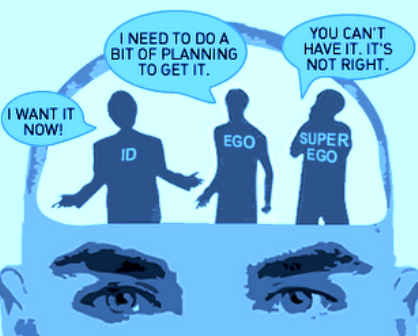Can Ego be Changed?
Can we change our Ego?
From the perspective of Mindful Therapy for depression, anxiety and stress: YES.
Sigmund Freud, Austrian neurologist and founder of psychoanalysis, introduced the idea of ego as a part of the self that regulates between the wild person that wants everything without delay (the id: libido, envy, desire) and the very restrictive self that says: don’t do anything terrible, you’ll get punished (the super-ego). For Freud, the ego was always trying to make peace between the two other forces.
Freud saw the ego as the “self,” the part of each of us that is stable, unchanging, and formed in
childhood. Because the ego was formed at an early age and was strong, his psychoanalysis process was needed to change it. For “Analysis,” it will take 5-7 years of sessions 2-5 times per week — a rather significant undertaking!
Can Ego be Changed?
Yes!!! We have learned a lot since Freud pioneered psychotherapy.
With Mindfulness, we perceive the ego differently. We see the ego as the “self”in the present. Sometimes for a period of negative thoughts that bring on sadness or depression, sometimes (after learning Mindfulness in Therapy, for example), with Allowing and Acceptance and calm. In those 2 states the ego is very different.
Mindful Psychotherapy can help a person change reasonably quickly; for example, significant change can happen in 6 months of weekly meetings or a settling down can happen after an 8-week mindfulness workshop meeting once a week.
Once we understand mindfulness we see ego as a force in us that wants things to change: make more money, have a better partner, have perfect kids, become happy, drop the worries, for example. The ego is like a hungry child who can only think about having another piece of candy. It can get very near-sighted. In Buddhist terms, we might call it a “hungry ghost” whose appetite can never be satisfied, because no matter what it gets, it wants more.
When people learn mindfulness they can put down the ego, give it a rest. Someone mindful is aware of the present and ok with that, is not trying to change anything at that moment. The modern definition of mindfulness is awareness of the present with acceptance. At least that’s how I say it.
With acceptance, we practice contentment with what we have.
It reminds me of the beautiful lines by Leonard Cohen, “When you stop thinking about yourself all the time, a certain sense of repose overtakes you.”
So, Sorry, ego, not much room for you when we are content! With contentment, the brain can slow down, and the mind can feel peace, we can rest.
Do you want to let go of EGO, Stress, Worries, Regrets???
Mindfulness is the key.
Learn and practice mindfulness and enjoy giving Ego occasional naps so you can have acceptance and contentment.
One way to explain mindfulness is that it can help change how we relate to pain and suffering.
This is different from taking an aspirin to make a headache go away. When we try to make things go away, like thoughts, they just get stronger. Instead, with mindfulness we change how we relate to the headache so that the headache is only one of many things in our awareness, and therefore less bothersome.
For more on Mindfulness and the 8-Week Mindfulness Workshop starting September 28,2020 visit our HomePage.


